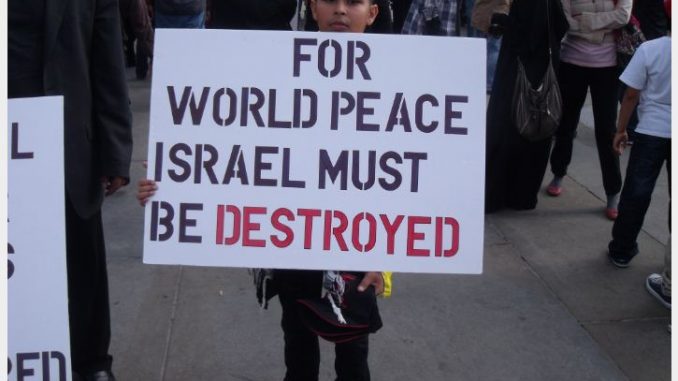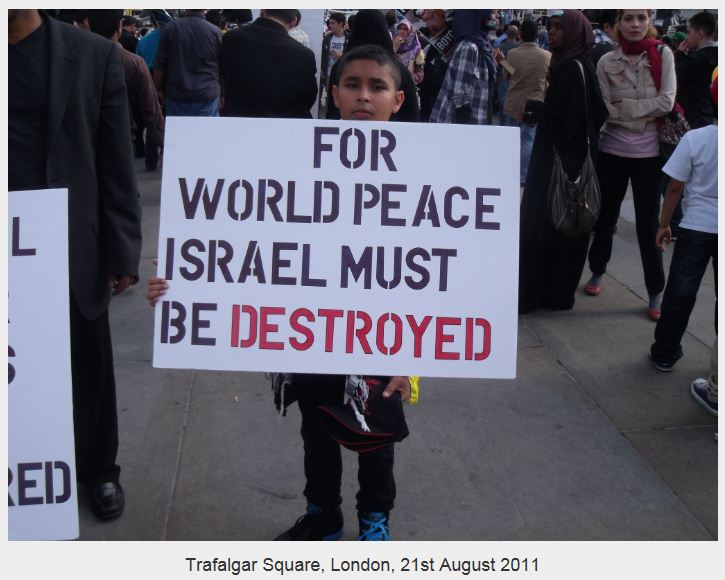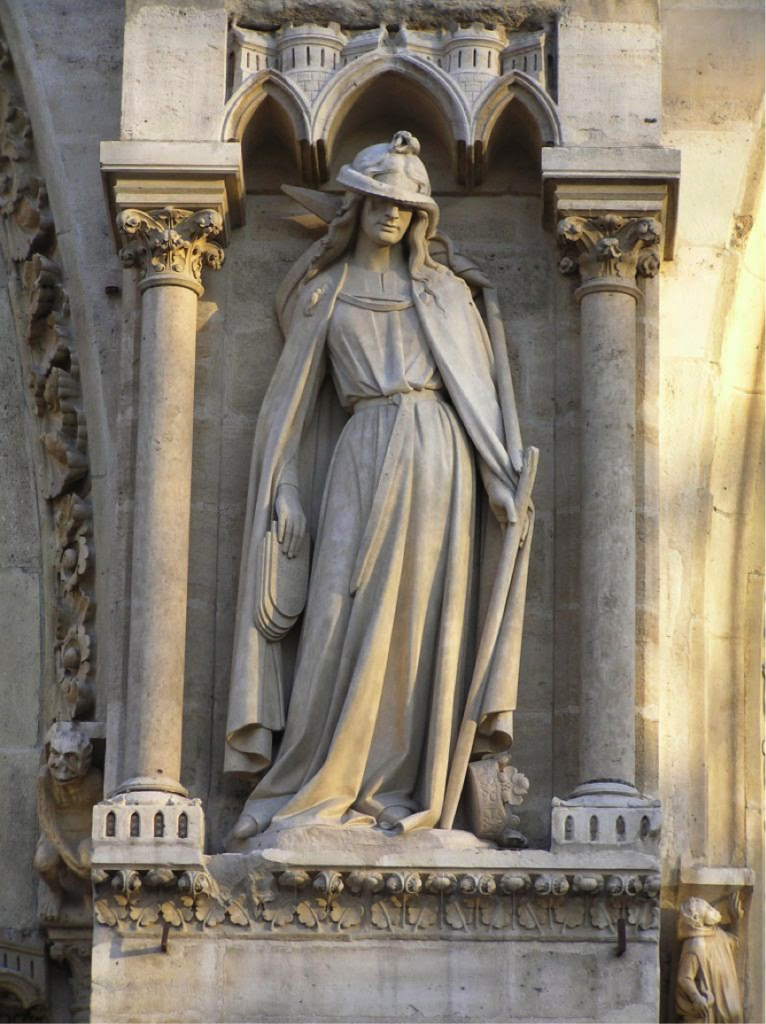
Dexter Van Zile’s book, Submitted Under Protest: Essays Written in Defense of Western Freedom has just been published. Reviewed by Ardie Geldman at The New English Review.
I wrote an Preface, which I post here:
Preface
Richard Landes, Medieval Historian, Critic of 21st Century News Media
In years to come, when historians begin to sort out the massive moral and cognitive disorientation of the progressive left in the first decade of the 21st century, they will want to read these pages carefully. The year 2000, best known for disappointing believers in the Y2K scare, also proved a dramatic turning point for global Jihad. In the Fall of the year 2000, the balances shifted dramatically in the war between global Jihad and the West. Quite suddenly, the vastly weaker side militarily, launched a cognitive war campaign on multiple fronts, aimed at paralyzing the West’s defenses and inciting true believers to take up Jihad. Jihadis gained the upper hand without most in the West even noticing. For some pessimists who did pay attention, while Europe slept, the unthinkable became the inevitable – a Muslim Europe.
In Europe more than any other democratic zone, a civil-society Maginot Line collapsed: widespread hostility to Jews, fueled among Muslims by paranoid apocalyptic preachers, and among everyone by lethal journalists reporting what amounted to blood libels against the Jews as “news”, led to increasingly violent public demonstrations, to schools overrun with anti-Semitic bullies, to unrestrained hatred of sovereign Jews. Jihadis participated energetically in all aspects of the attack, especially at the protests where, shouting “Death to Jews,” they fomented riots targeting initially Jews, but really, all infidels. The situation today, unimaginable two decades ago, has Europe, with an already restive and violently anti-Jewish/anti-infidel Muslim population, now further hit by waves of aggressive refugees from a radically dysfunctional Muslim world in the throes of merciless religious wars they blame on the West and bring with them to the West.
One of the key elements in the stunning reversal of fortunes in favor of Jihadis fighting the West was their ability to find allies in the Western pubic sphere, who shared their narrative of world redemption through the elimination of Israel, “our global misfortune.” FOR WORLD PEACE ISRAEL MUST BE DESTROYED!
Sharing this Zionist enemy brought progressives and Jihadis together in a catastrophic “anti-imperialist” alliance sanctioned by no less than the pacifist (!) Judith Butler, foremost proponent of post-modern critical theory, who in 2006, welcomed Hamas and Hizbullah as members of the “global progressive left” on the basis of their “anti-imperialism.”
Not only did this astonishing statement ignore the moral chasm that separates progressives from Jihadis on virtually every value Butler says she holds dear, but it is based on a fundamental error of reasoning. Espousing anti-American imperialism hardly makes one anti-imperialist. On the contrary, it can, and in the case of Jihadis, does arise from imperialist rivalry. Thus did Judith Butler, and more broadly, the PoMo-PoCo progressive “Left,” take the most regressive religious imperialism on the planet into the bosom of their global movement because of a shared hatred of US and Israel.
Much of this had to do with the overwhelming consensus among many progressives that the proper optic for the conflict between Israel and her Muslim neighbors was the “Israeli-Goliath vs. Palestinian-David” frame. This coincided neatly with the Jihadi narrative, in which Israel was the ultimate enemy, the Dajjal (Antichrist). For the radical left, Israel was the secular embodiment of evil: racist, colonialist, apartheid, Nazi.
Systematically misinformed about the forces at work in the Middle East by a generation of “activist” information professionals, a disoriented generation of thinkers, dreamers, researchers, and reporters, plunged into catastrophic alliances with enemies, and, at the same time, turned against critical allies and friends in a clash of civilizations they preferred, in their narcissism of small differences, to locate domestically between Right and Left, rather than between a progressive West (even the right) and a regressive Jihadi Islam.
And among the many battlefields this cognitive war took place one of the most significant for a wide variety of reasons, was in the heart of liberal/progressive Christian churches. Here, the narratives of Israel the arch-villain, found a warm welcome. Indeed, as this collection of Van Zile’s essays documents in so many facets, the Church embraced a replacement theology in which the Israelis were the new “Nazis” and the Palestinians the new “Jews.” Nor were they alone. Educated people, especially Europeans, believed that the Israelis deliberately murders Palestinian children, that they are conducting a genocidal campaign against a people whose demographics growth outstrips that of the alleged genocidal perps. As a result, as Irwin Cotler puts it, Israel is the only country in the world accused of genocide and threatened by genocide.
Dexter Van Zile composed the following set of essays over the critical years during which this cognitive disorientation and moral inversion gained an institutional footing in many a “progressive” church (2005-15), the years they officially embraced the “Israeli-Goliath/Palestinian-David” narrative. They bear witness to a large-scale, self-destructive process that, hopefully, future and wiser generations will not allow to play out with so little opposition. These essays testify at once to Van Zile’s bold struggle to resist these destructive forces from gaining strength in his beloved Christian community, and to the power that these lethal narratives about Israel held over so (too) many members of that community. In Van Zile’s own words, these anti-Zionist churches, including his United Church of Christ,
enlisted in the propaganda war against Israel at a time when the Jewish state was most in need of – and entitled to – their support. Primarily this took the form of a strong minority within the church pushing hard for divestment and boycott motions against Israel.
Certainly, the churches packed a more limited punch in the larger attack on Israel than, say mainstream “lethal journalists,” or post-colonial professors, or “human rights” NGOs with their halos and their humanitarian racism. But the case of the progressive churches holds a special significance because, of all segments of the progressive left, these churches would be the place one would expect the most resistance to the atavistic appeal of a Christian anti-Semitism in its most primitive form – destructive envy. If any progressive group, child of the post-war democratic consensus – the world of the UN, the Geneva Accords, the world in which “War is not the Answer” – if any “angels of our better nature,” could lay claim to having learned the painful lessons about blood libels and genocide, the liberal and progressive churches stood at the head of that line. Indeed, in their penitential contrition, they seemed especially capable of that positive-sum relationship with Jews that can tolerate Jewish independence.
And yet, in the aughts, the Israeli-Goliath seized hold of the imagination of some of the most ardent and active members of these Churches. Armed with lethal narratives like the “al Durah” icon of hatred which “replaced, erased the picture of the Jewish boy in the Ghetto,” they threw off their Holocaust guilt and contrition, cheered the Palestinian “victim,” and jeered the Israeli “oppressor.” They seized upon every lethal tale of a malevolent IDF targeting children; they bathed in the delight of seeing sovereign Jews maligned and debased by lethal narratives they did not care to examine for veracity.
And yet, in all their moral outrage at the Jews (except, of course, those “good Jews” who self-debased alongside them), they fell silent not only about the far more serious sufferings of other victims, even fellow Christians, but they had nothing to say about the oppressive behavior of Palestinian leaders, with their hate-ridden public sphere, their vicious campaigns of mass murder through suicide, their persecution of Arab Christians. It was Palestinian suffering at the hands of racist Israelis, 24/7. Even the most heinous Palestinian violence became evidence for Israeli evil: Israel must have done something to deserve this hatred (just as many would also suggest that America had done something to deserve Al Qaeda’s hatred). Given the role of such hermeneutically-sealed scapegoating in Nazism’s paroxysm of Jew-hatred, one might have expected progressive, Holocaust-conscious, Christian groups to steer clear.
And yet, not only did this kind of thinking gain ascendancy in these churches, but it presented itself as the ultimate form of renouncing all anti-Semitism. In his struggles, Van Zile had to confront a literal moral inversion of reality:
For too many Protestant theologians, issuing one-sided condemnations of Israel is their way of demonstrating they have exorcised Christianity of the anti-Judaism that has plagued the faith since its birth, with disastrous results for Jews [sic!]. Condemning Israel as a human rights abuser, while remaining virtually silent about oppressive human rights violations in nations that have sought its destruction for decades, does not demonstrate Christianity’s transcendence of its anti-Judaism, but its re-emergence — in main-line Protestantism.
There’s something touching about Van Zile’s shock at the dishonesty and malevolence of those who shaped the churches’ statements, at their inexplicable failure to condemn Palestinian terrorism even as they screamed at Israel for constructing a wall to stop attacks on their civilians. He writes as if reason, empirical evidence and moral clarity should shape their attitudes… which they should, were it not for other factors. But, as he realizes himself, something else, something much more sinister moves these anti-Zionist Christians. It is an ancient poison known variously as supersessionism, replacement-, or fulfillment-theology. It is the notion that, in order for Christians to be “the chosen people,” the Jews must be un-chosen.
This invidious, zero-sum conception of chosenness – I can only win if the other loses – has lain at the heart of Christian (and Muslim) fear and hatred of Jews since Christianity’s earliest centuries. Like so much envy, it dares not name itself, precisely because it reflects a profound insecurity. Noted one observer, “Humiliating others is a certain indicator of low self-esteem.” This invidious supersessionism, which dates from the earliest centuries of the Christian church, continues to haunt the anti-Zionist wing of Christianity. It appeals to its unhealthy appetite for tales of Jews behaving badly, and leads down the slippery slope that leads to demonizing they-who-must-be-replaced.
In the process of adopting the Palestinian “narrative” of themselves as the new Jews (victims) and the Israelis as the new Nazis, not only did these churches betray the Jews, they sided with the very forces that wanted their destruction: the Jihadis. In embracing their narrative they failed see that their fellow, medieval believers in supersessionist superiority over the Jews, also felt that about Christians. Blindness takes many forms.
Synagoga, blinded, with broken staff, on the portal of Notre Dame de Paris, ca. 1250.
Dexter’s struggles with this massive moral failure on the part of “progressive” Christians – those who led the charge, seconded by the host of bystanders who failed to intervene – provide fascinating insights into the various ways this supersessionist need to put down Jews has fueled one of the more disturbing of the many 21st century alliances between Jihadis and “progressives.” In this case, it’s an alliance of the progressive Churches with a classic “pre-modern” form of Christian replacement theology, which the Palestinian Naim Ateek has made user-friendly for post-colonial ideologues.
Here, at Ateek’s Sabeel Ecumenical Liberation Theology Center, among the anti-Zionist Palestinian Christians, Van Zile found the classic behavior of dhimmi leaders, who “point the finger of blame at another dhimmi population, while saying nothing about anti-Christian violence perpetrated by Muslim oppressors.” This characteristic inversion, operated by dhimmi leaders urging submission to Muslims, gives us precisely that disorienting distortion so favorable to Jihadi goals – attack the Jews, protect the Muslims, no matter (or, because of) how badly they behave. In other words side with those Christians who already have accepted the triumphalist Muslim yoke, against Jews, who still resist it.
In this, Van Zile sees an echo of the Cold War behavior of the World Council of Churches, which adopted the position of their subject fellow Christians in Russia and “condemn[ed] the policies of Western democracies while remaining silent about the misdeeds of Communist dictatorships behind the Iron Curtain.” Only this time it’s far worse: rather than working for a glorious new world, useful idiots are now working for their worst and most merciless enemy.
Which is why readers will want to pour over these pages. They offer a harvest of insights into what has so disoriented the West that it allows itself to be invaded by a hostile and much “weaker” (read: more primitive) forces. In the history of the religious wars of the 21st century, his work will stand as an, alas, solitary but courageous stand against suicidal madness. His commitment to empirical evidence, his sense of justice still capable of rising above the rote relativity that has made the “Palestinian” moral case so plausible, his contained, but notable indignation, even outrage at what he sees and fights – all offer examples about how to think in times of crisis.
After all, when people can publicly ask, as did the Russians spreading the blood libels in 1892, or the Secretary General of the UN about the “Jenin massacre” in 2002 – “Is it possible for the Jews to be right and the whole world to be wrong?” – it is important to have people capable of saying, “it is, indeed, possible, especially when the whole world has snatched at a poisoned, paranoid, apocalyptic fantasy.” For only societies that have such people, can resist the draw of genocidal hatreds based on projected libels. And woe onto the society that cannot resist that poison.
If you want to hear what that lad, who called the emperor naked while everyone else praised his new “robes”, has to say in the 21st century, then read this book.
Richard Landes
Jerusalem, September 7, 2015.



Leave a Reply